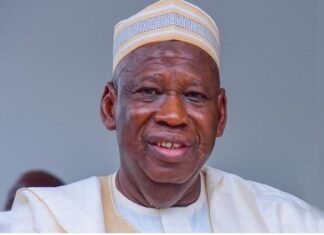By Ishaya Ibrahim
Adam Smith in his 1776 classic, Wealth of Nations, inquired on what builds nations’ wealth. Although not universally accepted as the basis for economic growth, its collateral impact on thinkers such as Karl Marx, as well as governments and organisations are still very much with us.
For Boyo, his inquiry was on the trigger for Nigeria’s poverty and the remedy to cure the disease. Unlike Smith, his thesis was never subjected to rigorous debate by governments, organisations and economic thinkers. He was therefore like the proverbial prophet without honour in his home town.
Of course, ego may be at the core of the rejection of Boyo’s excess liquidity theory as the cause of Nigeria’s poverty. How can the government accept the ideas of a man who has blamed their economic policies for fueling more poverty instead of alleviating it? Or how can his peers endorse his thesis and make him a star for the position they have jealously guarded?
“Look, if I write anything that is nonsense they would have finished me and I won’t have the courage to continue doing what I’m doing today,” he once told TheNiche in an interview.
Boyo was a thinker whose original thoughts on Nigeria’s poverty ought to have been looked into.
He claims, for instance, that between 1975 and 1985(just before the Structural Adjustment Programme started) the country had less income, but in terms of purchasing power was certainly better off, should have got us interested in his postulation.
“So, how come when we had 10 times the income we had about 10-15 years ago we are poorer? This is the anomaly, which was brought about because of a faulty monetary framework that unfortunately, worships the god of surplus cash, the god of excess liquidity.”
The central argument in Boyo’s theory can be simplified in three ways.
a. Nigeria’s major export, crude oil, is a commodity, which price is not dependent on the value of the naira;
b. Devalued currency is only beneficial to nations with competitive goods with other countries;
c. Naira devaluation is a tragedy, because devaluation from parity to the current N360=$1 could not have positive impact; however, Naira’s loss of purchasing power has negatively impacted our economy, unjustly!
In a simplified paragraph, Boyo summarised his logic. “ Excess liquidity drives inflation, inflation drives MPR (benchmark lending rate), MPR drives higher cost of funds, higher cost of funds drives higher cost of production, inflation and higher cost of funds make you uncompetitive, and inflation at 20 per cent makes certain that we’ll all be poor.”
What then is the way out? Boyo advocated for a system of distributing Nigeria’s crude oil dollar earnings in dollar certificates.
“The same $1 billion distributable revenue is not immediately substituted with N360 billion allocation; instead, constitutional beneficiaries receive dollar certificates equal to their respective allocations, while the actual $1bn remains domiciled in the CBN, so that the naira exchange rate is conversely determined by competitive market forces of demand and supply between banks and holders of dollar certificates.”
Boyo has passed on, leaving us with his thesis. He died on November 18 at age 72 after a brief illness.
How workable is his thesis is a matter to be determined after a debate. Can the debate begin? .












